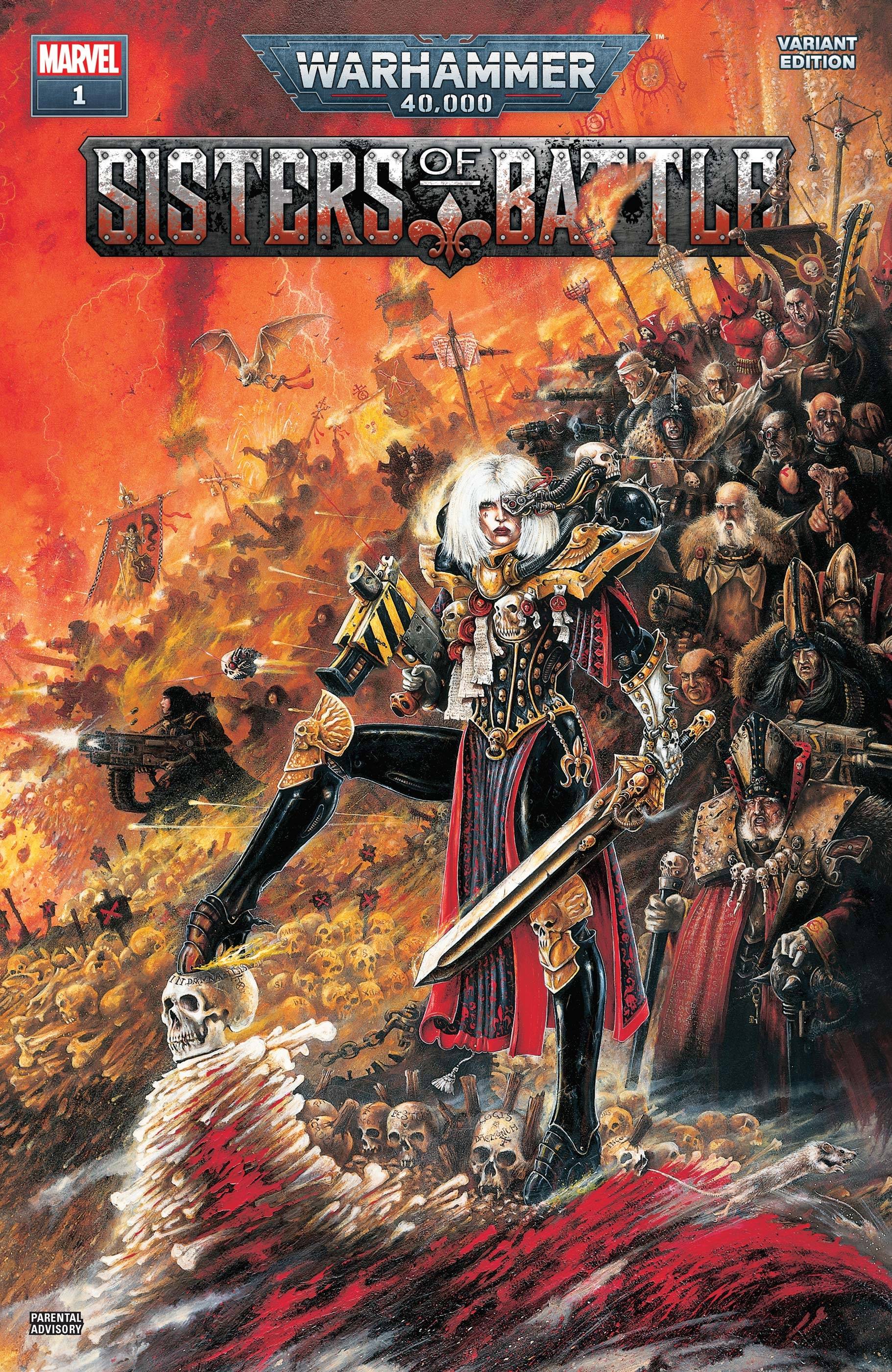Well...is it not equally true to say that it's not? Sure, there's fluff that says it is, and then there's lots that says it is not. Someone could very easily argue that chaos is just evil, end of, and back it up with more evidence.
A lot of that's down to the extensive revisions and rewrites to lore done over time, without much in the way of central authority, tracking, or coordination on GW's part. Not to mention, GW's propensity for introducing factions to tabletop
before the requisite world- and lore-building to fit that faction into the setting properly. Hell, the writeup of the Horus Heresy in my 2nd edition codex is far different than that of codices today. There's
only a 60+ book series between then and now.
Ad Mech was the cleanest fit to date not because of any army list consideration, but because they were an integral (but unexplored) part of the lore from the beginning, and Ad Mech units had
already found their way to tabletop between the cracks. GW, for the first time, had built an army list players
wanted and had been demanding for years, opposed to introduce an army list no one really wanted or anticipated, without a clear niche in the game, as a form of market testing
before spending labor hours on the lore.
The perfect example of GW-as-usual isn't actually the Tau, in my opinion. It's the
Necrons. When GW introduced the Necrons, they displaced
three armies that already filled the "slow-moving, shooty, incredibly hard to put down" gameplay niche -- Iyanden, Thousand Sons (
god damn were 3rd edition Rubric Marines amazing), and Death Guard -- with the requisite power creep to make models sell, but none of the lore to make them a compelling faction to play. GW just said "our
Aliens riff worked, let's riff
Terminator too!" and went all-in, without apparently realizing 'nids worked because they'd already been in the game for years, had a clearly-defined niche with lore behind it, and were introduced as an HQ-elite-heavy expansion to the genestealer cult army list.
...it was perfectly possible not for 40k to be big on parody, and be mostly taken straight...But I'd say for at least the 30 years and 8 editions since 2nd ed 40k, while often silly and including satire, is played fairly straight (in it's own weird way) at least as much as it isn't.
This is why I hesitate to call 40k parody. Satire, yes; parody, no. Yes, there are events, novels, and entire factions that are parodic, even farcical, but the setting and property themselves are not. The tone and tenor are generally tailored to whatever it is being satirized -- the satire of hooliganism through the Orks is fairly good-natured, whereas the satire of anything associated with the Imperium -- Catholicism through the Ecclesiarchy, privatized heavy industry and military-industrial complexes through the Ad Mech, military nepotism and incompetence through the Guard -- is damned scathing. GW writers' penchant for punching up is slipshod, but when they land a hit, it's right on the nose.
The question you should likely ask, is on which side of the Atlantic are people taking it more seriously than others. 40k, for better or worse, is quintessentially British and not everyone outside the Commonwealth is culturally equipped to parse or understand British humor. 40k's slide away from overt parody absolutely correlates to the growth of its popularity in North America.
[By the way, Summary Execution was absolutely in 2nd edition. It was just a terrible, terrible rule, because it only applied to Fear tests and put the Guard player in double jeopardy because Summary Execution almost always triggered follow-up cohesion tests. Very few units caused Fear but not Terror, which Summary Execution didn't solve, and 2nd edition cohesion tests were straight squad-killers. It was almost never worth it to actually use Summary Execution.
The Catachan version, on the other hand, was incredibly useful.]


